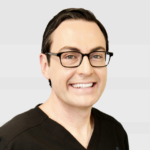Posted on May 24, 2021 in Rhinoplasty
If you have already scheduled a rhinoplasty, Dr. Ransom will give you detailed instructions on what you should and should not do through the recovery period. If you’re still considering the procedure, however, you’re probably curious about what you can expect after rhinoplasty. Dr. Ransom can answer any rhinoplasty questions you may have during a consultation, but below are the most common things to avoid through rhinoplasty recovery.
Exercise and Strenuous Activity
The first rule after any type of plastic surgery, including rhinoplasty, is to avoid exercise or any other type of strenuous activity like lifting heavy objects. During the initial stages of your recovery, you should be prioritizing rest while remembering to get up and walk periodically to prevent blood clots. Significant blood flow, however, increases circulation to the face, exacerbating swelling and creating a risk of bleeding. Sweat can also cause issues as your skin heals from the surgery. In later stages of recovery, exercise can cause a risk of breaking or otherwise injuring the healing bones and tissue of your nose, which are not completely healed even after you are ready to return to other routines. Dr. Ransom will advise when you can safely return to exercise, play sports, or other strenuous activity after your rhinoplasty. Usually, this occurs about 4-6 weeks after your surgery.
Blowing Your Nose
Blowing your nose can be surprisingly dangerous after any nasal surgery including rhinoplasty. Doing so can cause damage to the nasal mucous or bleeding. If you have seasonal allergies, it may be best to schedule your rhinoplasty when you are less likely to have symptoms. If you catch a cold close to your surgery date, it’s crucial to let Dr. Ransom know for your own health and safety as well. As you heal after your rhinoplasty, you can use a saline solution to clean your nose as necessary.
Sun Exposure
Excess sun exposure can cause discoloration in scar tissue as you heal, so it is important to avoid it as much as possible. If you are outdoors, be sure to wear proper SPF at all times and protect your skin by seeking shade or wearing a wide-brim hat whenever possible. Even after you heal, daily SPF is always a good choice to protect your skin and prevent signs of aging.
Wearing Glasses or Makeup
Wearing glasses can cause indentations in the cartilage or other soft tissues of the nose, creating a misshapen appearance as you heal. Those who wear glasses daily should switch to contact lenses through their healing period if possible. Extremely light frames may be safe, but always check with Dr. Ransom before your surgery.
Applying makeup to cover bruising or redness is ok, but its best to avoid around the incision sites. Even if you diligently clean brushes and other tools, there is still a risk for infection, so avoid applying makeup until all incisions are completely healed.
Lying Flat
After any facial plastic surgery, it’s important to keep your head elevated even while sleeping for the first several days of recovery. This helps to reduce swelling and subsequent discomfort. As you rest, keep your head propped up on pillows or recline in a chair to avoid excess swelling.
Smoking or Alcohol
Smoking and drinking alcohol are always bad for your health, but especially when healing from rhinoplasty. Nicotine restricts blood flow, which slows your healing. Alcohol can interfere with prescriptions that you may take during your healing period and thins the blood, resulting in excess bleeding. After your rhinoplasty, it’s best to avoid smoking or drinking for at least three weeks.
Schedule a Consultation
To learn more about rhinoplasty, schedule a consultation with Dr. Ransom. As a board-certified plastic surgeon and facial plastic surgery specialist, he can answer any questions you may have about the surgery or recovery period. Call Ransom/MD in San Francisco or contact us online.
Dr. Evan Ransom is an Ivy League-educated and Ivy League trained Facial Plastic and Reconstructive Surgeon. He is a Double Board Certified Head and Neck Surgeon and Facial Plastic and Reconstructive Surgery and fellowship-trained in facial plastic, reconstructive, and laser surgery. His practice is in the San Francisco Bay Area, serving patients from San Francisco, Oakland, Marin County, Palo Alto, Silicon Valley, Walnut Creek, the East Bay, and all over Northern California.
 (415) 550-1077
(415) 550-1077 San Francisco
San Francisco

